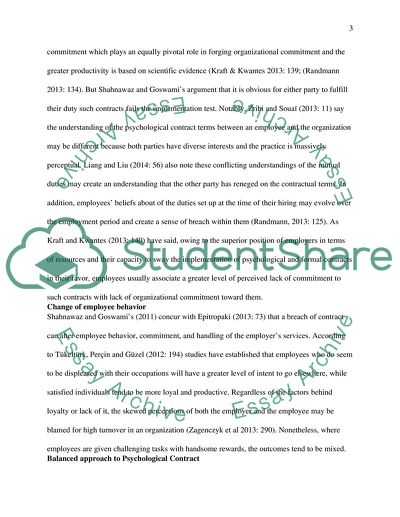Cite this document
(“Effect of Psychological Contract Violation on Organizational Essay”, n.d.)
Effect of Psychological Contract Violation on Organizational Essay. Retrieved from https://studentshare.org/human-resources/1627954-effect-of-psychological-contract-violation-on-organizational-commitment-trust-and-turnover-intention-in-private-and-public-sector-indian-organizations
Effect of Psychological Contract Violation on Organizational Essay. Retrieved from https://studentshare.org/human-resources/1627954-effect-of-psychological-contract-violation-on-organizational-commitment-trust-and-turnover-intention-in-private-and-public-sector-indian-organizations
(Effect of Psychological Contract Violation on Organizational Essay)
Effect of Psychological Contract Violation on Organizational Essay. https://studentshare.org/human-resources/1627954-effect-of-psychological-contract-violation-on-organizational-commitment-trust-and-turnover-intention-in-private-and-public-sector-indian-organizations.
Effect of Psychological Contract Violation on Organizational Essay. https://studentshare.org/human-resources/1627954-effect-of-psychological-contract-violation-on-organizational-commitment-trust-and-turnover-intention-in-private-and-public-sector-indian-organizations.
“Effect of Psychological Contract Violation on Organizational Essay”, n.d. https://studentshare.org/human-resources/1627954-effect-of-psychological-contract-violation-on-organizational-commitment-trust-and-turnover-intention-in-private-and-public-sector-indian-organizations.


